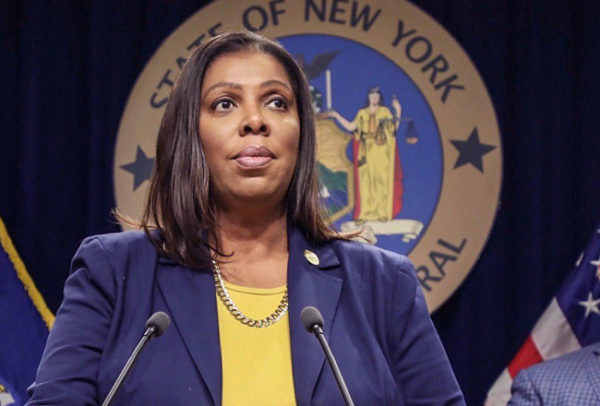New York State General Business Law Article 22-A was written to protect consumers from deceptive acts and practices in the conduct of any business, trade or commerce. In addition to merely putting limits on what unscrupulous people can get away with, the law establishes a mechanism to go after those who seem to be succeeding.
“Whenever the attorney general shall believe from evidence satisfactory to him that any person, firm, corporation or association or agent or employee thereof has engaged in or is about to engage in any of the acts or practices stated to be unlawful he may bring an action in the name and on behalf of the people of the state of New York to enjoin such unlawful acts or practices and to obtain restitution of any moneys or property obtained directly or indirectly by any such unlawful acts or practices,” the law states. Of course, it would have been more politically correct and actually more accurate had the law been written to read “he or she” in its references to the attorney general.
Letitia James, New York”™s current attorney general, has made it a point to put the word out when her office successfully prosecutes or negotiates a settlement with businesspeople who have been accused of taking advantage of consumers.
 The Office of Attorney General operates the Bureau of Consumer Frauds and Protection, part of the Economic Justice Division, that prosecutes businesses and individuals engaged in fraudulent, misleading, deceptive or illegal trade practices.
The Office of Attorney General operates the Bureau of Consumer Frauds and Protection, part of the Economic Justice Division, that prosecutes businesses and individuals engaged in fraudulent, misleading, deceptive or illegal trade practices.
In addition to litigating, the bureau mediates thousands of complaints each year from individual consumers. The bureau also provides consumer protection information, drafts legislation and conducts studies and writes reports on emerging consumer problems and issues.
On March 21, James announced recovery of more than $40,000 from a Hudson Valley event venue that cancelled wedding events due to Covid-19 shutdowns but failed to refund deposits made by consumers who had booked the facility.
The settlement was with the Falkirk Estate & Country Club in Central Valley.
James”™ office said it received complaints from various couples that Falkirk refused to refund their deposits and that Falkirk claimed that it used the deposits to fund the venue”™s operations instead of earmarking the money for the couples”™ events.
In the agreement announced March 21, Falkirk is required to reimburse two couples $18,300 and provide restitution for others who paid deposits but were not reimbursed. Falkirk sent James”™ office a check for the $18,300 when it returned to her office the signed settlement agreement.
“Although the pandemic forced many couples to cancel their weddings, they shouldn”™t have been left waiting at the altar for their refunds,” James said. “This is a big day for couples who were not able to celebrate at Falkirk, and I encourage anyone who paid a deposit but was denied a refund for their cancelled event to contact my office.”
Previously, James announced that her office had secured refunds of more than $1 million for thousands of people who bought advance tickets for shows at the Westchester Broadway Theatre in Elmsford but were unable to obtain refunds when the shows were cancelled because the theater had to close due to Covid restrictions.
James office also obtained an estimated $4.4 million in refunds from theater and concert ticket resellers covering dozens of entertainment events. The money went back into the pockets of more than 11,000 consumers who found that numerous performances for which they held tickets were cancelled.
Action by the attorney general”™s office also returned $427,000 to 76 consumers who paid deposits to the Greentree Country Club in New Rochelle.
In the spring of 2020, with Covid rapidly spreading and New York state prohibiting large gatherings, consumers who had placed deposits for events began to request refunds from the Greentree but were denied, according to the attorney general. Those consumers, instead, were offered other resolutions, such as rescheduling the event to a future date, accepting a credit of the deposit for future use, or transferring the credit to another person or event. Between April and September of 2020, James said, her office received complaints from numerous consumers and her office began negotiations that resulted in refunds being issued.



















